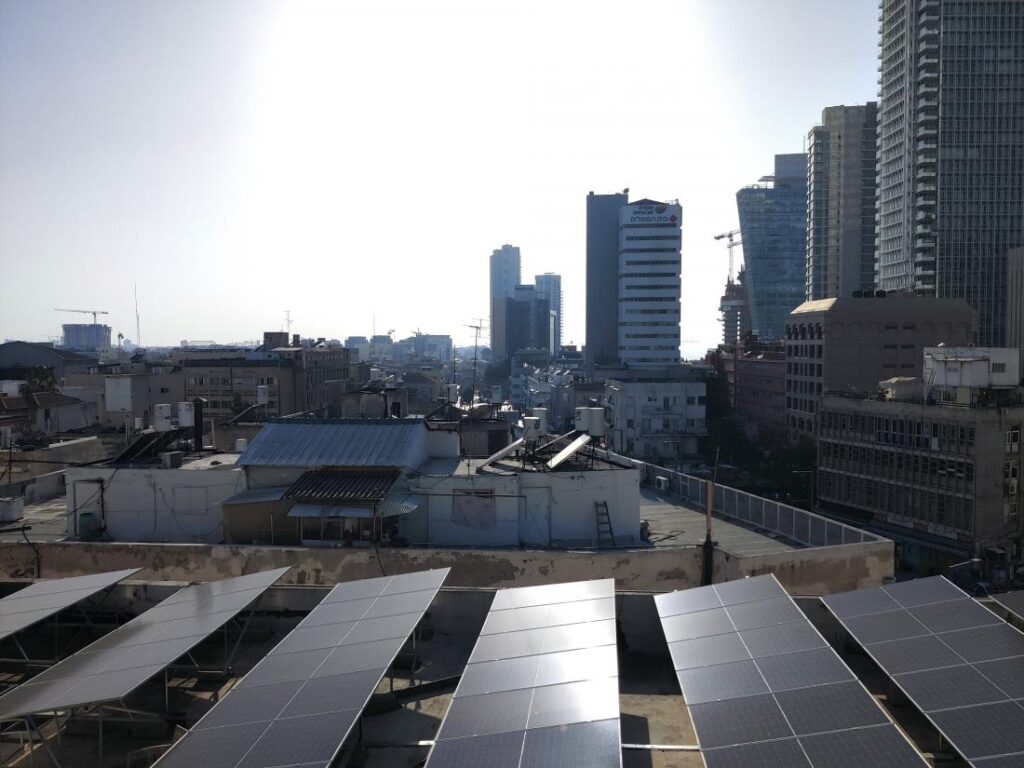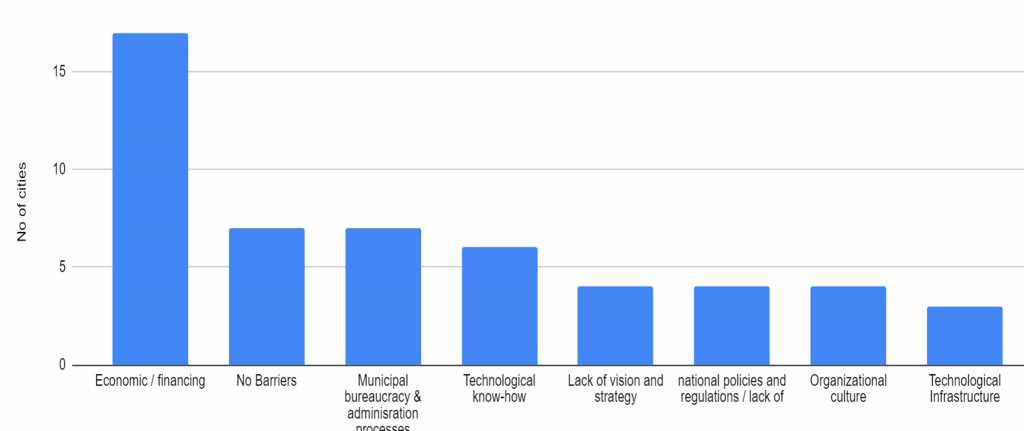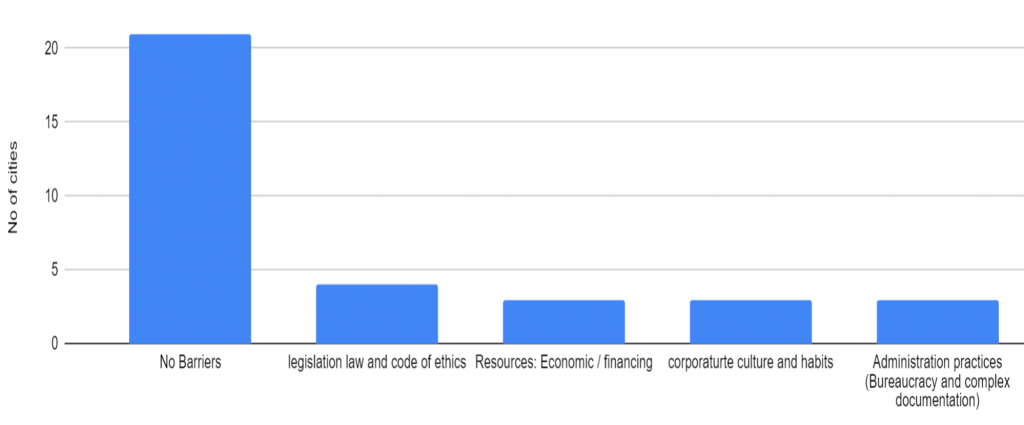
SME4SMARTCITIES study lead to new toolboxes to facilitate innovation and solve urban challenges
One of the first initiatives of the SME4SMARTCITIES project in 2020 was a study of the main challenges faced by Mediterranean cities and their Readiness for Innovation to achieve sustainability.
The study conducted Interviews with managers in 34 municipalities of Mediterranean Cities. The results were published in an article in an issue of Geography Research Forum magazine on smart cities and sustainability.
These results were echoed at varies venues as well. In August 2020, 70 representatives from local and regional authorities in Israel participated an online consultation meeting for a national plan for sustainable energy in local authorities. Other cities all across Europe demonstrated innovative endeavors to mitigate climate change, reduce mobility congestion, reduce air pollution, develop a circular economy and other initiatives across many application areas. Local authorities are showing increasing interest and openness to innovative and environmental ideas and initiatives. We are witnessing a flood of initiatives and lively participation of authorities. In many cities, there are already roles of innovation and sustainability managers. It is not just gardening, garbage collection or environmental protection, but environmental development and local sustainability, in the full sense of the term.
In the study, approx. 20% of the authorities said they were working to develop innovative and environmental initiatives on a large scale. There is great interest in adopting innovative solutions in a variety of areas such as strengthening the local economy, sustainable environmental development, “green” procurement, entrepreneurship development and more, but authorities have also described barriers such as sources of funding, lack of up-to-date professional knowledge, the complexity of processes and legislative barriers.
Key factors that emerged as essential for innovation and economic and environmental development were the leadership of the mayor and the authority’s CEO, the existence of the role of leading and integrating manager in cooperation with all municipal departments, professional staff, public participation and information.

Image: Top barriers to facilitate innovative initiatives in Mediterranean municipalities – Startups – results of the cities study

Image: Is there readiness or are there barriers to working with SMEs and Startups – results of the cities study
From Barriers to Solutions – the case of self-sufficient renewable energy
A prominent barrier is the access to funding sources. Because local authorities have to fund ongoing operating and maintenance activities throughout the year, they may find it challenging to allocate resources for innovative development. They need to rely on external sources for financial backing by government authorities and EU programmes. But there are self-financing channels, such as energy efficiency and cost saving through the installation of solar energy systems, which can cut costs and generate revenues for the local authority. Cities in Israel are working vigorously to establish systems for generating electricity from sunlight in their territory. Kfar Saba builds dozens of solar systems on the roofs of public buildings, in a process of public engagement and strict control over the efficiency and safety of the systems, in Jerusalem a solar electricity system was built on top of the Teddy Football Stadium, turning the stadium into a sustainable energy power plant. Eilat is also a leader in the transition to renewable energies which already attained 100% energy independence.
Another barrier is a sense of lack of technological knowledge and of complexity. Fortunately, this can be changed relatively easily because enough experience and knowledge have been accumulated and because clear guidelines, standards and Ecolabels can be great, easy tools for municipalities, as was shown in the SME4SMARTCITIES Green Procurement Toolbox and case study.
It seems that we have already entered the second wave of municipal innovation adoption. The pioneers have already adopted and shown that it is worthwhile. Now it’s the turn of more cities. If there is the political will and the understanding that each authority has great human, social, economic and environmental potential, the road is paved for innovative and environmental solutions that will yield great benefits.
Capitalize on the success of other cities – the Innovation Ecosystem Toolbox
Following the insights of this study and of additional SME4SMARTCITIES engagement with both cities and SMEs, two major deliverables have been developed and published – The Innovation Zone Toolbox and the Urban Innovation ecosystem toolbox. The SME4SMARTCITIES project made these toolboxes to be fully available on the web. Use them to turn your city into an innovation powerhouse, solve urban challenges, improve wellbeing and for making your cities more attractive to businesses and to intellectual capital.